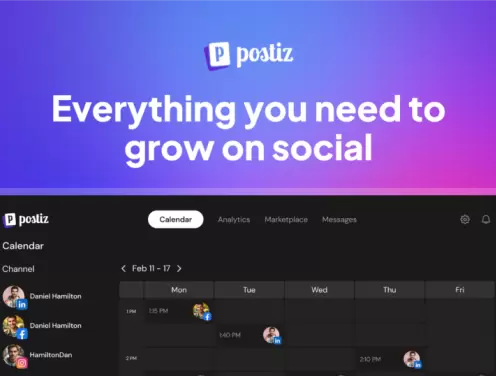How is artificial intelligence reshaping the modern marketing landscape?
Discover how artificial intelligence is revolutionizing modern marketing by enhancing customer insights, personalizing experiences, and boosting campaign efficiency. Dive into our blog to explore the transformative impact AI is having on the industry!
LEARN MORE LAUNCH DEMO NOW Welcome to the fascinating world of artificial intelligence (AI) where the lines between human ingenuity and technological advancement blur. Today, AI is not just a futuristic concept but a transformative force, especially in the realm of marketing. Gone are the days when marketing strategies relied solely on human effort and intuition. Now, with AI stepping in, businesses can harness unprecedented data processing power and predictive analytics to reach their target audience more effectively.
This blog post delves into how artificial intelligence is reshaping the modern marketing landscape, offering insights that are crucial for any marketer looking to stay ahead. From personalized customer interactions to optimizing ad spend, AI technologies are driving efficiency and innovation in ways we never imagined. Whether you are a seasoned marketing professional or just starting out, understanding the impact of AI on marketing is essential. So, let's explore the myriad ways AI is revolutionizing the marketing ecosystem, making it smarter, faster, and more customer-centric than ever before.
This blog post delves into how artificial intelligence is reshaping the modern marketing landscape, offering insights that are crucial for any marketer looking to stay ahead. From personalized customer interactions to optimizing ad spend, AI technologies are driving efficiency and innovation in ways we never imagined. Whether you are a seasoned marketing professional or just starting out, understanding the impact of AI on marketing is essential. So, let's explore the myriad ways AI is revolutionizing the marketing ecosystem, making it smarter, faster, and more customer-centric than ever before.
Table of Contents
- What skills should modern marketers prioritize today?
- How can AI improve customer segmentation strategies?
- What ethical considerations emerge with AI in marketing?
- How does AI facilitate personalized customer experiences?
- What are the risks of over-reliance on AI?
- How are chatbots transforming customer service interactions?
- What role does AI play in predictive analytics?
- How do marketers stay competitive with AI advancements?
- Adapting to an AI-driven marketing world
What skills should modern marketers prioritize today?
Modern marketers should prioritize a blend of traditional marketing know-how and digital proficiency to excel in today's AI-driven landscape. First and foremost, data analysis skills are critical. Understanding how to interpret data from various sources, such as customer behavior analytics and social media metrics, can provide valuable insights that shape effective marketing strategies. Proficiency in using tools like Google Analytics, Microsoft Excel, and AI-powered analytics platforms is essential for drawing actionable conclusions from data.
In addition to data skills, marketers must become adept at content creation and management. Given the importance of personalized content in AI marketing, being able to craft compelling messages that resonate with specific audience segments is crucial. Familiarity with marketing automation tools that use AI to personalize content delivery can vastly improve efficiency. Furthermore, marketers should also develop skills in SEO (Search Engine Optimization) and SEM (Search Engine Marketing) to boost the visibility and reach of their content. Combining these skills enables modern marketers to not only create appealing content but also ensure it reaches the right audience at the right time.
In addition to data skills, marketers must become adept at content creation and management. Given the importance of personalized content in AI marketing, being able to craft compelling messages that resonate with specific audience segments is crucial. Familiarity with marketing automation tools that use AI to personalize content delivery can vastly improve efficiency. Furthermore, marketers should also develop skills in SEO (Search Engine Optimization) and SEM (Search Engine Marketing) to boost the visibility and reach of their content. Combining these skills enables modern marketers to not only create appealing content but also ensure it reaches the right audience at the right time.
How can AI improve customer segmentation strategies?
AI can significantly enhance customer segmentation strategies by analyzing vast amounts of data to identify patterns and trends that humans might miss. This allows marketers to create highly personalized and targeted campaigns, ensuring that the right message reaches the right audience at the right time. Moreover, AI-driven segmentation goes beyond traditional demographics, delving into behavioral, psychographic, and even real-time contextual data for a more nuanced understanding. As a result, businesses can build stronger customer relationships and improve overall marketing efficiency.
What ethical considerations emerge with AI in marketing?
When integrating AI into marketing, ethical considerations like data privacy, transparency, and bias become paramount. Ensuring AI systems handle consumer data responsibly while safeguarding privacy is crucial to maintaining trust. Additionally, transparency in AI-driven decisions and avoiding biases that could unfairly target or exclude demographic groups are essential for ethical marketing practices. By addressing these issues, marketers can leverage AI responsibly and sustain consumer trust and loyalty.
How does AI facilitate personalized customer experiences?
AI facilitates personalized customer experiences by analyzing vast amounts of data to understand individual preferences and behaviors. It enables marketers to deliver tailored content, product recommendations, and targeted advertisements that resonate with each customer. With AI-driven insights, brands can engage their audience in a more meaningful and relevant manner, boosting customer satisfaction and loyalty. This level of personalization not only enhances the customer journey but also drives higher conversion rates and sales for businesses.
What are the risks of over-reliance on AI?
While AI can significantly enhance marketing efforts, over-reliance on it carries several risks. One major concern is the potential loss of the human touch, making interactions feel impersonal and robotic. Additionally, AI systems are only as good as the data they are trained on, which can lead to biased or incorrect outcomes. Finally, an over-dependence on AI can create a skills gap, limiting marketers' ability to think creatively and strategically without technological assistance.
How are chatbots transforming customer service interactions?
Chatbots are revolutionizing customer service interactions by providing immediate, 24/7 support, significantly enhancing customer satisfaction and engagement. These AI-powered assistants can handle a vast array of inquiries, from simple frequently asked questions to more complex issues, freeing up human agents to focus on more intricate tasks. They offer personalized responses based on customer data, ensuring that each interaction feels tailored and relevant. This not only boosts efficiency but also helps in building stronger customer relationships.
Moreover, chatbots can seamlessly integrate with other marketing tools and platforms, allowing businesses to gather valuable insights and feedback. By analyzing customer interactions, companies can identify common pain points and trends, which can be crucial in shaping future marketing strategies. They also support various languages and can be scaled effortlessly to accommodate growing customer bases, making them a versatile asset for global businesses. In essence, chatbots are not just transforming customer service; they are setting new standards for what customers expect in their interactions with brands.
Moreover, chatbots can seamlessly integrate with other marketing tools and platforms, allowing businesses to gather valuable insights and feedback. By analyzing customer interactions, companies can identify common pain points and trends, which can be crucial in shaping future marketing strategies. They also support various languages and can be scaled effortlessly to accommodate growing customer bases, making them a versatile asset for global businesses. In essence, chatbots are not just transforming customer service; they are setting new standards for what customers expect in their interactions with brands.
What role does AI play in predictive analytics?
Artificial intelligence is revolutionizing predictive analytics by allowing marketers to anticipate customer behaviors and trends with remarkable accuracy. Gone are the days of relying solely on historical data and educated guesses; AI algorithms can process vast amounts of data in real-time. By analyzing patterns in consumer interactions across multiple channels, AI can forecast future actions, helping businesses to fine-tune their marketing strategies. This predictive capability empowers marketers to make data-driven decisions, ultimately increasing ROI and customer satisfaction.
Additionally, AI enhances predictive analytics by providing real-time insights that are continuously updated with new data inputs. This dynamic approach means marketers can stay ahead of the curve, adapting their campaigns as needed to meet changing consumer preferences. For instance, an AI system might predict which products a customer is likely to purchase next, allowing for personalized marketing efforts that feel tailored and relevant. As a result, AI not only improves the accuracy of predictions but also fosters a more responsive and agile marketing landscape, ensuring that businesses remain competitive in a rapidly evolving market.
Additionally, AI enhances predictive analytics by providing real-time insights that are continuously updated with new data inputs. This dynamic approach means marketers can stay ahead of the curve, adapting their campaigns as needed to meet changing consumer preferences. For instance, an AI system might predict which products a customer is likely to purchase next, allowing for personalized marketing efforts that feel tailored and relevant. As a result, AI not only improves the accuracy of predictions but also fosters a more responsive and agile marketing landscape, ensuring that businesses remain competitive in a rapidly evolving market.
How do marketers stay competitive with AI advancements?
To stay competitive with AI advancements, marketers need to continually upskill and embrace a culture of learning by keeping abreast of the latest AI tools and trends. Leveraging AI-powered analytics can help them make data-driven decisions, optimizing campaigns for better audience targeting and engagement. Collaboration with tech experts and investing in AI-driven platforms can streamline operations and maximize efficiency. By harnessing AI for personalized marketing strategies, marketers can deliver more relevant content, ultimately driving higher customer satisfaction and loyalty.
Adapting to an AI-driven marketing world
Adapting to an AI-driven marketing world is no longer a choice but a necessity for businesses wanting to stay competitive. Embracing AI technologies can seem daunting at first; however, it offers invaluable opportunities for growth and innovation. By leveraging AI-driven tools, companies can better understand consumer behaviors, personalize marketing campaigns, and optimize their strategies in real-time. This means more effective targeting, increased customer satisfaction, and ultimately, higher conversion rates.
For business leaders and marketing professionals, investing in AI is an investment in the future. The key to successfully navigating this transformation lies in continual learning and staying updated with the latest AI advancements. Collaboration with tech specialists and ongoing training for marketing teams will be crucial in harnessing the full potential of AI. In the end, those who adapt and evolve with these cutting-edge technologies will not only survive but thrive in the rapidly changing marketing landscape.
For business leaders and marketing professionals, investing in AI is an investment in the future. The key to successfully navigating this transformation lies in continual learning and staying updated with the latest AI advancements. Collaboration with tech specialists and ongoing training for marketing teams will be crucial in harnessing the full potential of AI. In the end, those who adapt and evolve with these cutting-edge technologies will not only survive but thrive in the rapidly changing marketing landscape.
AI ASSISTANT
Time to level up your social media game with AI Assistant!
Take your social media game to the next level with our AI Assistant, which generates unique content ideas, captivating captions, eye-catching images to your brand's voice and target audience.
LEARN MORE FREQUENTLY ASKED QUESTIONS
AI-generated content: Your top questions answered!
We understand that AI-generated content can be a new and unfamiliar concept for many people. That's why we've put together a list of frequently asked questions and answers to help you better understand this technology.
RELATED BLOG POSTS
All the tips & tricks you'll need...
Get the fresh tips and tricks you'll need to ace social media marketing.











